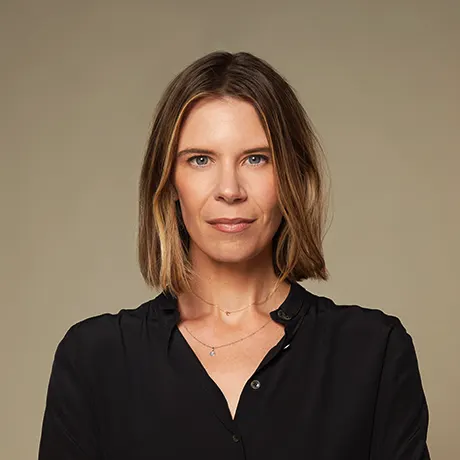ADHD, social awkwardness, and ghosting (Allison’s story)

Stay in the know
All our latest podcasts delivered right to your inbox.
Allison O’Keefe, a UX designer in Detroit, always felt she rubbed people the wrong way. Then, in her early teen years, one of her friends confirmed it when she called Allison “the annoying friend” behind her back. This made Allison more cautious in social situations, which often overwhelmed her. Worse, she also found herself accidentally “ghosting” people, forgetting to respond to their messages.
Eventually, a therapist asked her if she’d ever been diagnosed with ADHD, and the diagnosis started to make a lot of sense. She now feels less isolated — even as she still grapples with how open she wants to be about her ADHD.
How do folks with ADHD navigate these choppy social waters? Listen in as Laura and Allison sort through these questions and more.
Related resources
Episode transcript
Allison: I asked my boyfriend if he had ever suspected, and he was like, "Yeah, it makes sense." He would call me very bubbly when we first started dating, so he saw quite a few symptoms where after I brought it up from that diagnosis, he was like, "Yeah, this all makes sense to me."
Laura: From the Understood Podcast Network, this is "ADHD Aha!," a podcast where people share the moment when it finally clicked that they or someone they know has ADHD. My name is Laura Key, I'm the editorial director here at Understood, and as someone who's had my own ADHD "aha" moment, I'll be your host. I'm here today with Allison O'Keefe. Allison is a UX designer based in Detroit, and she's also a listener who wrote in. So, thank you so much, Allison, for being here. Thank you for being a listener. How are you doing today?
Allison: I'm good. I'm really excited to be here.
Laura: Let's start with you sharing your diagnosis story. When did you get diagnosed?
Allison: In August of 2021. I was struggling a little bit at work, and my workplace is actually very supportive with mental health and wellbeing. So, I attended a webinar because I had no idea how to start therapy. And the key takeaway that I got from it like to start was like, write down what has been hard to manage, and my hard-to-manage bullet points were anxiety and worry, forgetfulness, trouble focusing, trouble falling asleep, and intrusive thoughts.
So, that is what I went into therapy with, and my goals for therapy were better-coping mechanisms and not worrying, and being able to focus. Those are my goals.
Laura: OK, we'll take care of that in a week or so.
Allison: Right, yeah. And so, when I started the initial appointment, I went through the questionnaire, and the therapist, my therapist asked if I had ever been diagnosed with ADHD and I had not. It was a surprise to me that it is something that came up that she asked if I had been diagnosed for.
Laura: Had you ever considered ADHD prior to that?
Allison: No, it's not anything that ever crossed my mind. Funnily enough, after that first initial appointment, I asked my boyfriend if he had ever suspected and he was like, "Yeah, a little bit. It makes sense." So...
Laura: Yeah, tell me more about that. What, did he give you any more detail?
Allison: It was really just like the symptoms that you see and people who do have ADHD. He had a front-row view of, since we've been living together for the last couple of years, being very impulsive with buying things and being very hyperactive. He would call me very bubbly when we first started dating, so he saw quite a few symptoms where after I brought it up from that diagnosis, he was like, "Yeah, this all makes sense to me."
Laura: Bubbly. I'm really interested to hear this term. I love unpacking euphemisms that we use for ADHD symptoms, and that's just one that I had never heard before. What do you think he meant by bubbly?
Allison: I think he meant like very excitable, and I have definitely felt that way even in our relationship and just with friendships in general where I'm like very excitable. I've always said that, like, really small things will make me excited, and I get very, like, interested in things. When somebody brings up a topic, I get very invested and like excited about whatever the thing is. So, I think that is what he meant by bubbly.
Laura: We'll come back to that. Let's stick with your diagnosis story for a moment. So, your therapist raises the question, "Have you ever been diagnosed with ADHD?" It's interesting that your therapist went straight to "Have you ever been diagnosed with ADHD" as opposed to "Have you ever considered ADHD?"
Allison: Yeah. Yeah. And she definitely did let it sit with me for a little while till I looked into different resources of ADHD, like across the Internet. I actually took a look at like the DSM-5. I started watching YouTube videos and I downloaded podcasts, which is how I found this one. And she really let me sit with it for a little while just to, like, make sure that it fit for what I was feeling and what I was experiencing. She didn't want to just jump to the conclusion and label me with ADHD without like having that consent from me. Like saying that, "Yes, this is something that that does resonate with me and my experiences that I was having."
Laura: The last time that we chatted, I wrote down this phrase that you used. You said that ADHD for you was never in the, quote, realm of possibility.
Allison: Yeah. Nobody in my life had ever been diagnosed with ADHD before, so it wasn't something that I was familiar with, even like the old term ADD like that, that never came up anywhere. Like teachers that I had in grade school or high school. It was just never something that ever came up. And I feel like it fits a lot of ADHD people, like out of sight, out of mind, Like it wasn't something that I was aware of growing up.
Laura: You know, to the best of your — that your memory allows. What kinds of ADHD symptoms do you think you were experiencing, even though you weren't aware of it at the time?
Allison: Definitely chattiness. I was definitely a chatty kid. I got in trouble for that a couple of times in school. I would be passing notes or I would just be like talking in class. Funnily enough, I was also learning sign language with a friend, so we would be like talking and sign language across the classroom. And I did get in trouble for that, but chattiness and a lot of forgetfulness.
Like forgetting to do homework and bring homework home. I believe I actually forgot to, like, get something signed by my parents for band. And because I forgot that and I wanted to participate, I forged my mom's signature, and of course, my band teacher was like, "That is not a mom's signature, that is a child." So, I did get in trouble for that. I also had a lot of brain hyperactivity all the time where I was just constantly thinking, and I could never shut my brain off.
And because I was in like sports and stuff, I think that the being in sports and sort of like wearing myself out every day, I was able to sort of like get out some of that hyperactivity where I could focus a little bit more.
Laura: What sports did you play?
Allison: I played soccer, and I did cross country.
Laura: Very tiring sports, and a way to get out a lot of energy, yeah.
Allison: Yes. But it was also very funny, actually. I was very slow. I was not fast, but the girls that I ran with were also slow. And we just used that time to talk.
Laura: Of course.
Allison: Yes. It was a great time to talk.
Laura: That's nice. Forgetting to get things signed or forgetting to hand things in, I like when people bring that up because it's just this really great example of ADHD in action, especially things that parents can notice early. Like as an early indicator, it's like, "Oh, my kid did the work," or "My kid, you know, understands the work, but it just didn't make it to the teacher." Yeah.
Allison: And I think I mean, schools hand out those planners to the kids like the first day of school or whatever. And I remember being very excited to fill out the planner, but I don't know that I necessarily remember to, like, keep up with it.
Laura: Yeah.
Allison: It's just so much structure that they want you to utilize. But I mean, I think a lot of people who do have ADHD know that like structure is great, but it is also sometimes a prison where you have to like, stick with that. And that I think was always very difficult for me.
Laura: Don't remember if this adjective that you used for yourself growing up was something you shared with me when we chatted before, or if it was from your email that you sent in. But I remember that you used the word annoying. Kids considered you annoying. I say this with love, Allison. I hope you know I don't think you're annoying. I want you to know this.
Allison: Yeah, it is definitely something that I still struggle with today. I was definitely very excitable, as we've talked about, and I was always very constantly chatting, and I definitely have a tendency to overshare and go a little bit farther than I think most people would. And that really sort of rubbed people the wrong way.
And so, because of that, I became the annoying friend. It's actually quite sad. I accidentally came across a text message from people in my friend group where somebody had texted one of my friends saying that I was the annoying friend and my friend group compared to the annoying friend and one of the other friend groups. That was my first sort of initial experience of feeling like, "Oh, the people that I hang around with, they think that I'm annoying and that it was like rubbing them the wrong way where it doesn't necessarily like make them want to be around me," which is really sad.
I think I was in middle school or like maybe high school, so it's like those formative years where that's not something you want to hear from your friends. And just having that experience definitely stuck with me. And even to this day, I'm very hesitant to like overshare with coworkers and even my friends today, like they have mentioned, like, "Oh, Allison doesn't really share things with us." And it is something that I'm working on with this new friend group specifically because they're my friends and I want to share things with them. But I'm always very like cautious about what I say because it could be something that is just a little overboard and it ends up pushing people who I care about away.
Laura: I'm sorry that happened. That kind of thing would stick with me. I can see that it sticks with you and that it impacts how you're approaching your friendships today.
Allison: Mm hmm. Yeah.
Laura: Part of your racing thoughts, do they involve thinking about yourself and if you, quote-unquote, messed up at any point during the day and maybe were overly annoying or something like that, is that maybe what keeps you up at night sometimes?
Allison: Oh, absolutely. Yeah. And it is definitely like a lot of things just pop into my head. It ends up with me Googling things very late into the night and sending myself notes so that I can look more into it later the next day. But yeah, overthinking tendencies, where I think back to how that day went and my interactions with people throughout the day.
The overreactions I definitely think about a lot. And it does sit with me to the point where I usually try to end up like coming back the next day and trying to fix what I might have done the previous day just because it was just sitting with me and sitting in my mind and on my brain. And I won't let it go unless I fix it.
Laura: I totally feel you. Sometimes I feel like I'm overbearing because I will come back to that thing that got blown out of proportion in my head. And then in the morning, I'm just waiting for the moment when I can reach out to that person and be like, Hey, I didn't mean to be whatever, blah, blah, blah, blah, blah. Sometimes, like people who get me, they're like, "No, it's all good." Like, I would, I didn't even think about it. Most of the time they say, "I didn't even notice that."
Allison: Yeah, yeah. And that happens with my boyfriend often where I'll say something and then I have, I can't stop thinking about it. And I come back to him later and I'm like, "I'm so sorry that, like, I overreacted that way or I was in your way." And he'll just be like, "Well, that's fine. That's not something that I've been thinking about."
Laura: Yeah, it's such a difficult cocktail, the restless brain, the restless ADHD brain, plus the, when you know you have ADHD and you have awareness of your challenges, or if you encountered a text about being annoying or something like that and you have this awareness of how people perceive you, kids and adults with ADHD, we actually, we have content about this on Understood.org about feeling remorse for things big and small, like completely blown out of proportion. Like "I did this wrong, I screwed this up. It's really hard to cope with." Do you talk to your therapist about this? Or...
Allison: Oh, yeah. Just being able to talk with her. And it's after a week of ruminating on things, I really like being able to bring things to her to just talk things out. And it's usually when I do talk things out that it all just starts to feel better. And even if it's something that I've been deliberating or like unable to make up my mind about something, it usually ends with me coming to this realization after I've spoken it out loud of like, "Oh yeah, well, this is why this happened, because X, Y, and Z," or "This is why I've been feeling this way." Like after I get it out into the open and speaking with her and sort of just having her as a sounding board is very, very helpful for me.
Laura: So, one of the things I like to do on this show, and the purposes of the show is to help people see through the context of human stories what ADHD symptoms and choices and behaviors can really look like, so that maybe they can spot them in themselves. And there's one thing that you talked about in your email and that we chatted about previously, that isn't something that we've talked a lot about on the show, which is what I call ADHD wishful thinking or over-optimism. I guess I'll pause there and just get your reaction even to that term. ADHD wishful thinking.
Allison: That definitely resonates with me just because over my adult years I've definitely been very ambitious in my hobbies and I started with photography back in high school and it was very much like, "Oh, I, I want to become such a good photographer and I want to put my work online and I just want to be fully into the world of photography."
It usually happens when, like I tell people like, "This is what I am doing," and then the novelty of it is gone. That actually happened back in 2008, and when I was going to start a photography blog. And I think that was also the last time I did photography, because I let people know like, "Hey, I have something that's really been coming." And then after I posted that on Instagram, I don't think that I touched my camera since, which is a bummer because I really love photography. It's something that's really close to my heart.
But I definitely like, go down these sorts of rabbit holes all the time where I'll get very interested or invested in a thing, and I dedicate all of my time to this thing, and it just eats up so much of my mental space and that's all that I can think about. And sometimes it all just go away or sometimes it'll go away prompted by telling people, and then the novelty has gone. It's very, very strange to even just like talk about.
But I had read a blog about two girls from Michigan who had sailed around the Great Lakes, and my family has a sailboat. So I was like, "Oh, I connect with us. This is something I can absolutely do. Like, I could sail around Michigan as well. I'm going to look online for a sailboat that I could live on as I sail across the Great Lakes." I put together the route and like all of the places that I had stopped at and to a Google My Maps, I create a Pinterest boards of like how I was going to decorate this boat. And I created a blog that, like the girls, being very aspirational. I was like, "This is, I'm going to write about all of my experiences and like how I'm going to do this."
And I honestly truly cannot say what happened. But I at some point I just dropped it all and I no longer wanted to live on a boat and sail across the Great Lakes. It was just gone. So, it's really just like things like that. That is like a very impulsive thing to even consider doing. I mean, I've grown up on a sailboat, but I don't know how to sail one.
Laura: It's tangential to your life, but yeah.
Allison: Right. Yeah. So, it's just very impulsive things like that where I tend to get very excited and very invested and then all of a sudden the excitement is gone and I'll have moved on to something else. That's, that's wild.
Laura: I mean, Alison, do you want to hear the short list of the things that I've tried to invest myself and skills that I wanted to develop that just were gone with? A yes. OK, let's see. Joan of Arc expert and feminist biographer, feminist critiquer of advertising across New York City on billboards and taxicabs and whatnot. I started a Tumblr that lasted three days, rock critic, movie critic, all these things that I've just tried to do. And I'm like, "I'm doing this. This is what I'm going to do." And then I'm like, "Nah, nah." It's fun, but It can be painful, though.
Allison: Yeah. Yeah, it is very painful. And it's really, I think, difficult because I want to be doing multiple things at once that I have a lot of like investment and I have a lot of like excitement about. But for whatever reason I can only focus my energy on one of those things. And so, it feels very difficult. And I've spoken to my therapist about this like, I don't understand how people have multiple interests and like dedicate their time to multiple things at one time. It is an enigma to me, and I don't understand that.
Laura: There is another thing that you mentioned when we chatted again or in your email. I can't remember, but you talked about ghosting.
Allison: Yes.
Laura: Tell me about ghosting.
Allison: It's happened my entire life. I would start talking with guys from dating apps when like I was still dating and I would just sort of forget they existed and then never text them again. That happened a number of times. I think in the email I mentioned that I had been texting my sister and she was telling me about her own personal interests, and I meant to text her back and I never did, which I felt really bad about.
The worst case of my ghosting was an old coworker who had messaged me and she was saying that her boyfriend, they were hiring at his company and that I should get in touch with him if I was interested in like switching jobs and the feeling that I got from just her text message, I hadn't even looked up her boyfriend's message yet, it was just like so overwhelming of like, "I don't even know what to say. I'm so anxious. I need to think about, like, how am I feeling with work right now."
And I don't even know that I messaged her back that day. I was just so overwhelmed with this idea of responding to her that I think I took a week and a half to respond. And once I did, I don't think she ever responded because that was kind of like crappy of me. I might have damaged that relationship, to be honest, just because the feelings were too much for me in that moment.
Laura: It seems like the ghosting isn't related to forgetfulness, but maybe responding to a text message and maybe finishing a big work project like everything is at the same level. In terms of priority, it's hard to prioritize. Is that accurate?
Allison: I think so, yeah. And I think it's sometimes the ghosting ends up because I am overwhelmed and but then it also, as my mom has texted me and I've seen the text message and I completely forget and then she'll text me back the next day asking if I saw her text. And it's just like, "Oh yeah, I just..."
Laura: Moms are so good like that.
Allison: "I saw it and I forgot to respond." That happens a lot.
Laura: My mom will do the same thing. She's like, "Did you see that?" I'm like, "Yeah, I saw." But I don't I can't attribute that to ADHD that much.
Allison: Right.
Laura: Yeah, I get really overwhelmed because I want to give a thoughtful response.
Allison: Yes. Yeah.
Laura: It's not malicious. For anybody listening who doesn't have ADHD and you got ghosted by someone who has ADHD, it's most likely not intentional. Let's just put that out there. Maybe the guys from the dating app that might have been, maybe that is they weren't memorable enough, right? That's not on you. But you know, how open are you with other people about the fact that you have ADHD?
Allison: Oh, I'm not open about it at all. The only people who know are my therapist, my sister — my sister also guessed that I had ADHD — and my boyfriend. Those are the only people who know.
Laura: And I mean, you're early, too, and it takes a long time to share. And you can choose to never share too. It's yours, it's part of your identity, however you want to share that to be interesting. If your friend knew that you had ADHD, I'm not saying that you should have shared that with her, just it would have been interesting if there's more in general, if there's more awareness of ADHD, and if she knows that you have ADHD, she might be like, "Hey, reminder about this."
Allison: Yeah. Yeah. And it is definitely something that like I'm grappling with right now, like, I'm not sure yet how — despite the fact that I've come on this podcast and I'm like announcing it to the world that I have ADHD — I'm still sort of grappling with how open I want to be about my diagnosis. I'm actually planning on talking about it with my friends this weekend. I am working on trying to share a little bit more with the people who are close to me. And that's like, I really do want them to know, like I want them to sort of understand more about who I am as a person.
Laura: Yeah, and maybe you'll decide that you don't feel comfortable sharing that at all. Or maybe you want to scream it from the rafters. Either way, I think it's awesome, Allison, that you're going to connect with your friends, and you know, you should write us back and let us know how it goes. But if you don't, I won't be offended because I won't consider it to be ghosting. We're just busy people.
Allison: OK, I'll do — will write back.
Laura: Thank you, Allison, for hanging out with me today. It's been so great to interview you.
Allison: Thank you for having me on. I actually had this aspiration at one point I was doing a running blog because I was really into running at one time. And I was also it was when I first started learning about podcasts and listening about all these podcasts, I was like, "I'm going to combine the two." And I started blogging about running and I started blogging about podcasts. And I was always like, "I would love to have my own podcast one day, but I don't even know what I would talk about." So, this has been so much fun, and I loved being here.
Laura: Yay! And see, that's an example. It wasn't wishful thinking you're here. It's a step in that direction. So, thank you so much, Allison. I think you're great.
Allison: Oh, thank you. This has been awesome.
Laura: You've been listening to "ADHD Aha!" from the Understood Podcast Network. If you want to share your own "aha" moment, email us at ADHDAha@understood.org. I'd love to hear from you. If you want to learn more about the topics we covered today, check out the show notes for this episode. We include more resources as well as links to anything we mentioned in the episode.
Understood is a nonprofit organization dedicated to helping people who learn and think differently, discover their potential and thrive. We have no affiliation with pharmaceutical companies. Learn more at Understood.org/mission. "ADHD Aha!" is produced by Jessamine Molli. Say hi, Jessamine.
Jessamine: Hi everyone.
Laura: Briana Berry is our production director. Our theme music was written by Justin D. Wright, who also mixes the show for the Understood Podcast Network. Scott Cocchiere is our creative director, Seth Melnick is our executive producer, and I'm your host, Laura Key. Thanks so much for listening.
Host
Latest episodes
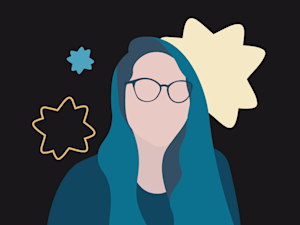
April 16, 2024
ADHD coach Jaye Lin was a gifted kid with undiagnosed ADHD. Now, she’s building communities and helping others cope with ADHD burnout.
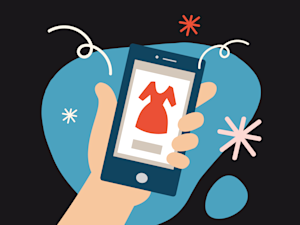
April 2, 2024
Writer Paulette Perhach had money coming in but struggled to keep it in her bank account. An ADHD diagnosis brought her struggles into perspective.
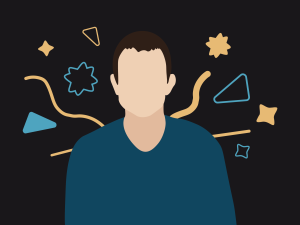
March 19, 2024
Eye to Eye founder David Flink is fighting the “just try harder” myth surrounding ADHD, dyslexia, and other learning and thinking differences.
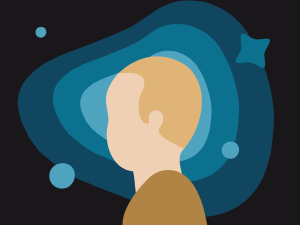
March 5, 2024
Peter Jones used to feel better saying he had a hearing problem rather than considering ADHD. Now, he knows he has ADHD and isn't afraid to say it.
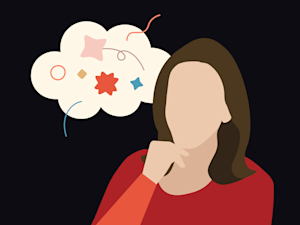
February 20, 2024
Before her ADHD diagnosis, ADHD coach Emily Weinberg thought she was just lazy. But in reality she was stuck in “analysis paralysis.”
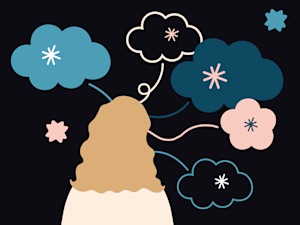
Carol Blumenstein was called an unteachable student. Now, she knows she has ADHD and dyslexia, and supports her five kids who learn differently, too.

January 23, 2024
Executive coach, actor, and former criminal defense attorney Ernest Anemone shares his ADHD story — and why he questions the term “attention deficit.”
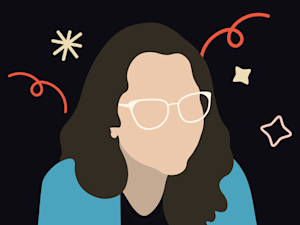
January 9, 2024
ADHD and post-traumatic stress disorder (PTSD) symptoms can look similar. And they can morph into what Hannah calls “a trauma ball of blame.”
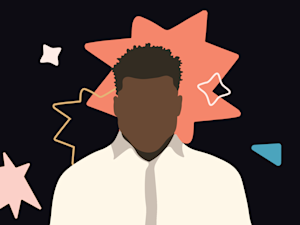
December 26, 2023
Livingston Steele was diagnosed with ADHD about a year into working at Understood.org. His experience and work have given him immense empathy for people with ADHD.
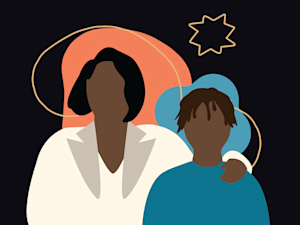
December 12, 2023
Wendy Zanders is a decluttering coach with ADHD. Find out how she got into organizing, and get a few tips for yourself.
